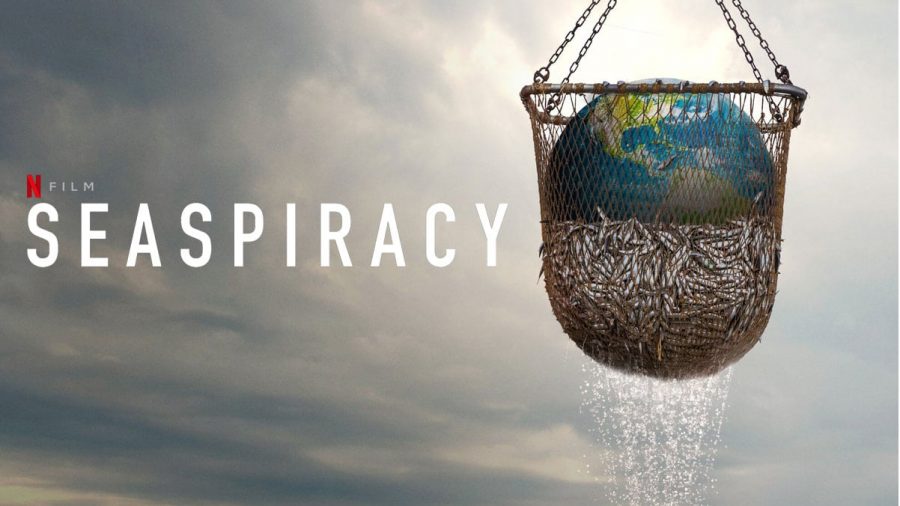“Seaspiracy”: The Truth Behind the Fish Industry
May 17, 2021
Fish is a main part of many people’s diets — most do not think twice when buying some from the market. What is largely kept hidden from the public, however, are the horrors that lay beneath the fish industry. In the documentary “Seaspiracy,” director Ali Tabrizi covers the controversial topic of the lengths the fish industry is willing to go to in order to make a profit.
Tabrizi’s love for the ocean can be seen throughout the entirety of the film, but as he uncovers more and more secrets about the reality of fishing and how it affects both the environment and people’s lives, he begins to realize the relationship between people and the ocean was not what he originally believed it to be.
The overall style of the film is very modern and visually pleasing — it switches between real-life footage taken by Tabrizi took and digitally animated facts and statistics that support his argument. The mix of the two makes “Seaspiracy” interesting and easy to watch, allowing the audience to be more willing to hear Tabrizi’s claim and support him. The shocking data and clips of interviews Tabrizi inserts into the film make the situation seem unbelievable, showing sides of the fishing industry many have never seen before.
As a person who has never thought twice about eating fish, I was appalled by what I saw. Tabrizi and the rest of the team working behind the movie definitely knew how to play into the hearts of the audience — some of the scenes are genuinely heartbreaking to watch. The numerous emotional clips in “Seaspiracy” are sure to emphasize the gravity of what has been going on and the lives that have been affected by fishing.
At the end of the film, the tone shifts from discouraging and alarming to hopeful. Instead of continuing to go on about the faults of the fishing industry, some tips on how to help save the ocean are displayed across the screen — just as many other documentaries on such topics do, “Seaspiracy” ends with a call to action.
I believe it was good to end off on a good note, as it gives people hope for the future. If the film had focused only on its darker elements, it definitely would have just made people feel more helpless. Giving the audience a direct way to help is a good way to prove to them that there is still hope. Overall, the movie was very informational — although it can get a bit intense at some points, I would definitely recommend it to anyone who wants to educate themselves on what the fishing industry truly does and why it is essentially killing the ocean.




